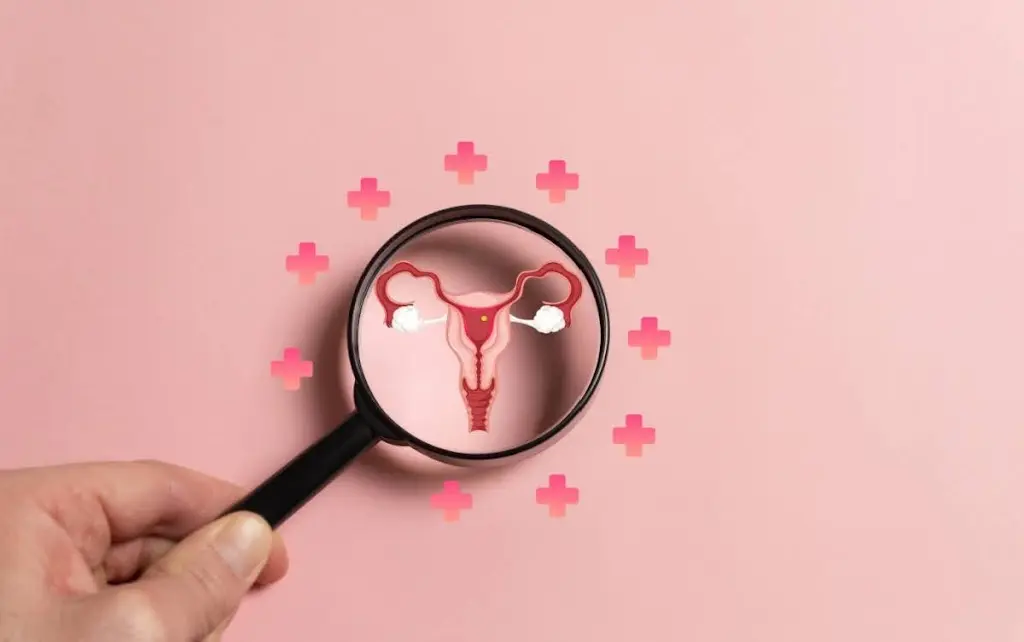Do you struggle with irregular periods, unexplained weight gain, and excess hair growth? If so, you may be dealing with a common hormonal condition called Polycystic Ovary Syndrome (PCOS). PCOS is a complex issue that can significantly impact your overall health and well-being, but the good news is there are ways to manage it. We will look into PCOS, exploring its causes, symptoms, and the most effective management strategies to help you regain control over your life from this condition.
What Is Polycystic Ovary Syndrome?
Polycystic Ovary Syndrome is a hormonal disorder that affects women of reproductive age. It’s caused by an imbalance in the levels of certain hormones, which can lead to a variety of symptoms. Women with PCOS often have higher levels of male hormones, called androgens, which can interfere with the normal function of the ovaries. This can result in the development of small cysts on the ovaries, irregular menstrual cycles, and other troubling symptoms.
Causes of PCOS
The exact cause of PCOS is not fully understood, but it’s believed to be the result of a combination of genetic and environmental factors. Women with a family history of PCOS are more likely to develop the condition. Additionally, factors like insulin resistance, inflammation, and exposure to certain environmental toxins may also play a role in the development of PCOS.
Signs and Symptoms of PCOS
The most common signs and symptoms of PCOS include irregular or missed periods, excessive hair growth on the face, weight gain or difficulty losing weight, and many other issues. These symptoms can vary widely from woman to woman, and the severity can also fluctuate over time. It’s important to pay close attention to any changes in your body and discuss them with your healthcare provider.
The most common signs and symptoms include:
- Irregular or missed periods
- Excessive hair growth on the face, chest, or back
- Acne
- Weight gain or difficulty losing weight
- Darkening of the skin in certain areas
- Fertility issues
Diagnosing PCOS
To diagnose PCOS, your healthcare provider will likely perform a combination of physical exams, blood tests, and possibly imaging tests. Blood tests can help measure your hormone levels, while imaging tests like ultrasounds can look for the presence of cysts on your ovaries. It’s important to have an open and honest conversation with your provider about your symptoms and medical history to ensure an accurate diagnosis.
Managing PCOS
While there is no cure for PCOS, there are several effective ways to manage the condition and alleviate its symptoms. The key is to work closely with your healthcare team to develop a comprehensive treatment plan that addresses your unique needs and concerns.
Some common treatment approaches include:
- Medications to regulate hormone levels and address specific symptoms.
- Lifestyle changes, such as a healthy diet and regular exercise.
- Therapies to address issues like excess hair growth or acne.
- Supplements or alternative treatments, like herbal remedies or acupuncture.
Differentiating PCOS and Endometriosis
Endometriosis is a chronic, painful condition where the tissue similar to the uterine lining (the endometrium) grows outside of the uterus, often on the ovaries, fallopian tubes, and other pelvic organs. This misplaced endometrial tissue still acts like normal uterine tissue — it thickens, breaks down, and bleeds with each menstrual cycle. However, since it has no way to exit the body, it becomes trapped, leading to inflammation, scarring, and the formation of adhesions.
The primary way to distinguish PCOS from endometriosis is through the specific symptoms experienced. While both conditions can cause painful, irregular periods, the reasons behind these symptoms differ:
- PCOS is characterized by an imbalance of reproductive hormones, which can lead to the formation of small cysts on the ovaries, as well as issues like excess hair growth, acne, and weight gain.
- Endometriosis, on the other hand, is defined by the abnormal growth of endometrial-like tissue outside of the uterus, which can cause severe pelvic pain, heavy bleeding, and fertility problems.
Another key difference is that endometriosis does not typically affect ovulation or menstrual cycle regularity the way PCOS does. Women with endometriosis may experience painful periods and intercourse, while those with PCOS are more likely to have irregular, unpredictable cycles.
Diagnosis of these conditions also differs. PCOS is usually diagnosed through a combination of symptoms, blood tests, and pelvic imaging. Endometriosis, however, often requires a laparoscopic surgical procedure to confirm the presence and location of the misplaced endometrial tissue.
Ultimately, while PCOS and endometriosis share some overlapping symptoms, understanding the distinct features of each condition is crucial for receiving the appropriate treatment and management plan. If you are experiencing any concerning gynecological symptoms, it’s important to work closely with your healthcare provider to determine the underlying cause and diagnose PCOS or other conditions similar to it.
Treating Related Conditions
PCOS can also increase your risk of developing other health problems, such as diabetes, high blood pressure, and endometrial cancer. It’s important to work with your healthcare team to monitor and manage these related conditions as well.
Nirvana Healthcare Network has a team of specialists who are dedicated to helping women with PCOS. We offer a range of services, including chronic care management, cognitive behavioral therapy, and other solutions designed to help all types of conditions. Get personalized, passionate care and solutions that don’t make PCOS symptoms worse but actually improve and enhance the way you feel.

